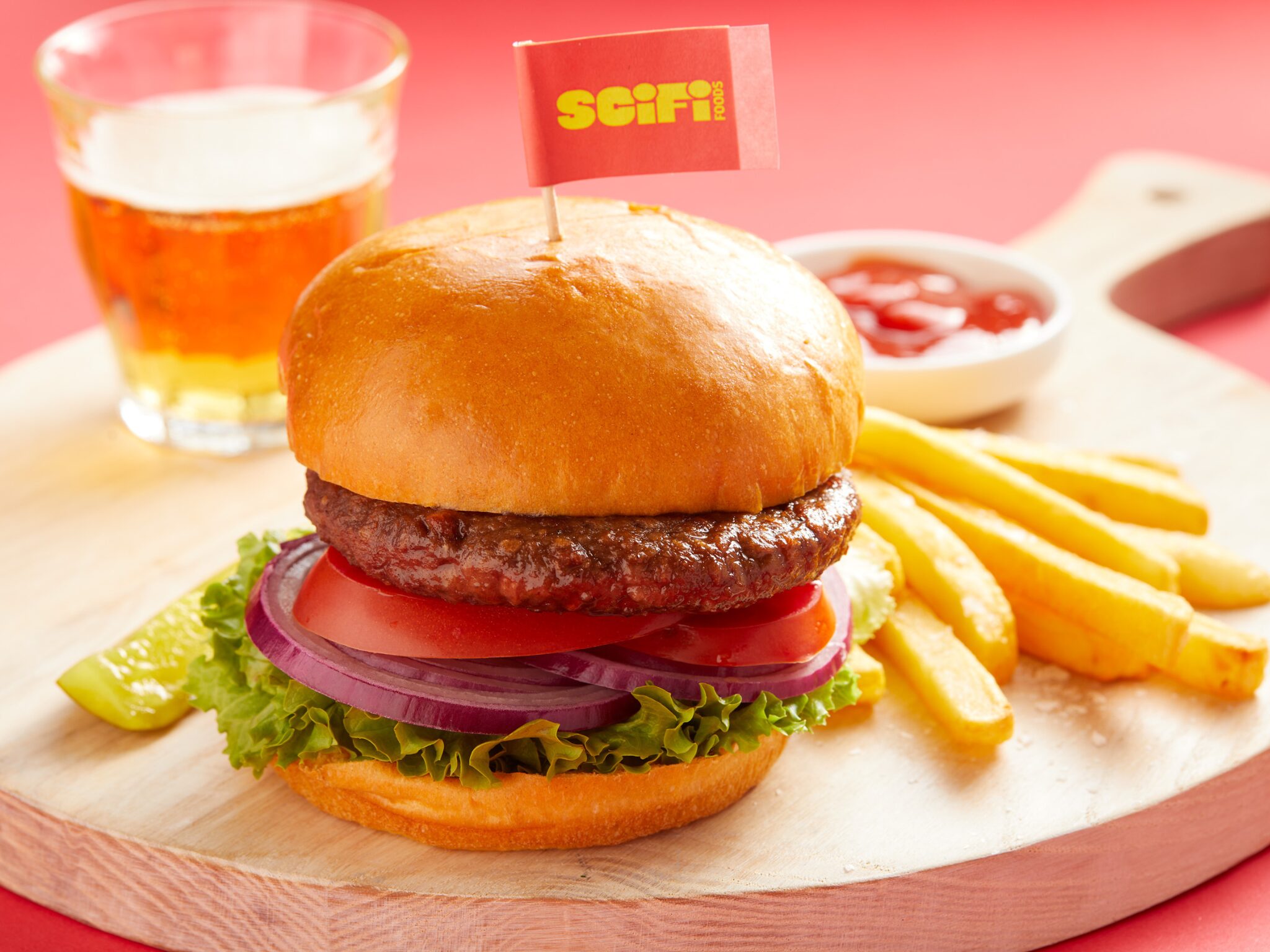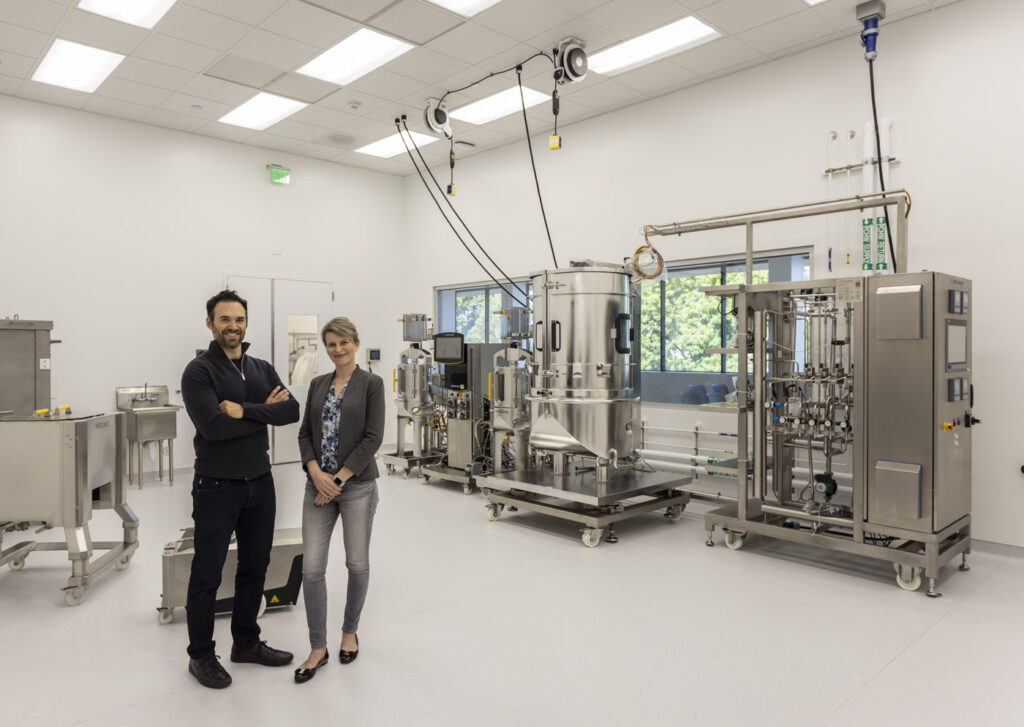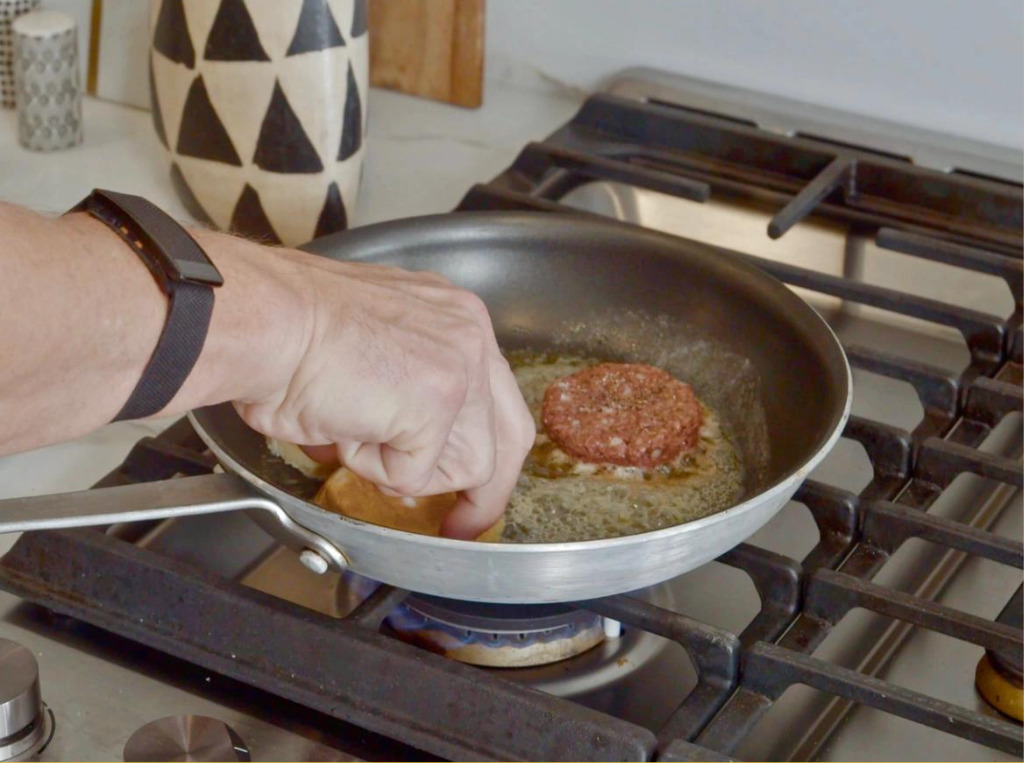
San Francisco-based SciFi Foods has announced the successful completion of its first 500-litre bioreactor run in its recently opened facility in San Leandro. The startup now aims to complete regulatory approval and enter US foodservice by early next year.
Hybrid meat might be coming to your plate sooner than you think. SciFi Foods, which makes beef from a mix of cultivated and plant proteins, has completed its first commercial-scale production of its cell-cultured beef in a 500-litre bioreactor.
The company achieved this feat in its recently opened 16,000 sq ft pilot facility in San Leandro, California. It’s the same scale that SciFi Foods will be commercialising out once it receives the regulatory green light from the FDA and USDA.
SciFi Foods can produce 50,000 hybrid beef burgers a year

Backed by Silicon Valley VC Andreessen Horowitz (a16z) and other investors like Coldplay, SciFi Foods has raised over $40M in total financing. Previously called Artemys Foods, the company emerged from stealth in 2022 with a cultivated beef product slated to be used in hybrid meat formulations.
Hybrid meat is a blend of plant and cultivated proteins, and along with blended meat (animal protein mixed with plant-based ingredients), it represents a rapidly growing trend. The idea is to combine the superior taste credentials of cultured proteins with the cost-effectiveness and scalability of plant-based ingredients.
SciFi Foods uses a 90/10 blend of vegan and cell-cultured ingredients. The 90% plant-based composition is derived mainly from soy, and helps the company solve a major bottleneck of cultivated meat: scalability. Scaling up is, as the startup puts it, “a major risk factor” for commercialising these proteins. To overcome that, the company has developed beef cell lines that grow in a 100% serum-free process, using a defined media that doesn’t include any animal-derived ingredients.
Single-cell suspension lines come with a major benefit: they can be grown in any standard, stirred-tank bioreactor, without the need to try and scale up novel hardware. And that has helped SciFi Foods finish its first run on the 500-litre bioreactor. With its hybrid approach, this is enough to produce about 50,000 burgers a year at launch, reveals co-founder and CEO Joshua March. “We expect to be able to double this pretty quickly,” he tells Green Queen.
The company says it encountered no problems in expanding its cell lines from bench scale to the large bioreactor – in fact, it witnessed higher yields in the latter than the small-format bioreactors it was using previously. “We have really great cell lines that we’ve optimised for scale,” notes March. “We are confident we can increase yield significantly more over the next couple of years.”
Currently, SciFi purchases the plant-based ingredients in its hybrid beef from major supplies, based on its own unique formula. “Today, we do the blending in-house,” says March. “However, we’re in talks with various co-packers for our commercial launch.”
Plans for price parity, regulatory approval and market launch

Speaking to Green Queen in November, March highlighted the issue with scaling up cultured meat production: “Scaling up a novel biomanufacturing process is always hard, but it’s especially hard if you are producing commodity products at competitive prices.”
This is where the single-cell suspension lines come in, given that they don’t require expensive substrates like microcarriers or scaffolding, which is crucial for cost control. In our last interview, March pointed to the industrial fermentation space for proof points that price parity for this sector is possible, but added: “There is only one reasonable blueprint for how to get there: a very simple process with minimal downstream processing and robust cell lines that grow well with low-cost inputs.
“Many of those cell lines are optimised through genetic engineering to approach the maximum theoretical performance for converting feed to product. We believe that all of the same principles apply to cultivated meat, which informs our unique strategy.”
In 2022, the company announced it had achieved price parity with conventional beef using a combination of its proprietary high-throughput cell line engineering and CRISPR technology. The latter is adapted from a genome editing system used by bacteria for immunity and has been touted as a potential embryonic treatment for several hereditary diseases (though some studies say altering the DNA of embryos or eggs and sperm could cause mutations that lead to other health threats).
At the time, March explained that the team had experimented with 10-20% cultivated proteins mixed with plant-based proteins to produce a burger that would cost under $10 to make at its facility, with scaled-up manufacturing potentially driving costs further down to $1 per burger. Now that it’s settled on the lower end of that share (at 10% of cultured beef), it will hope to be able to meet these numbers.
Doing so will be crucial, as the cost of living strains consumer wallets and shapes their attitudes around what they eat. In the US, a 1,018-person survey last year revealed that 46% of respondents are concerned about the rising costs of meat – but while 45% of them expressed interest in trying cultivated meat once it was described to them, only 4% would be willing to pay more for these novel proteins.
Proposed bans ‘profoundly un-American’

A larger global poll of 10,000 people last year, though, revealed that 62% of consumers are willing to eat cultured meat. However, there isn’t much research into consumer attitudes towards hybrid meats blending cultivated with plant-based proteins. A 2020 survey covering 1,000 Brits revealed that 35% would be open to trying these products – so while there is some acceptance, the room for growth is huge.
It’s also important because this will be how several cultured meat producers go to market, at least initially. It’s what Israel’s Aleph Farms – the latest company to receive regulatory approval, and the first for beef – is doing with its Black Angus Petit Steak, and Dutch startup Meatable plans to do with its cultured pork.
SciFi Foods hopes to get the go-ahead from the USDA and FDA by early next year, and is already in the consultation process with the latter. Then, it plans to launch into foodservice straight after. “We’re also exploring a number of B2B conversations,” March tells me. “We think that partnering with major food companies is a great way to scale up faster and to get into retail.”
Asked about the recent pushback against cultured meat in US states like Florida, Arizona and Texas – where Republican senators have been calling for a ban on these foods – March brushes them aside. “It’s clear that the proposed bans are for protectionist reasons, and [have] nothing to do with safety or anything else,” he notes. “This is profoundly un-American: consumers should be the ones to choose what products they want to eat, not regulators.”
The post SciFi Foods Completes Commercial-Scale Production to Bring Hybrid Beef One Step Closer to Your Plate appeared first on Green Queen.
This post was originally published on Green Queen.